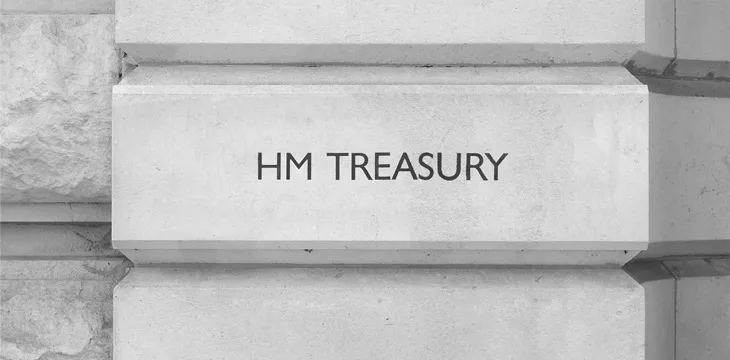|
Getting your Trinity Audio player ready...
|
The U.K. government has laid out its three-year plan to step up regulation, monitoring and enforcement of digital assets, as part of a broader policy to combat economic crime.
In a policy paper released by the U.K. Treasury and Home Office, the U.K. government detailed its plans to regulate digital assets and fight illicit economic activity, including a clamp down on fraud and money laundering, recovering criminal assets, combatting kleptocracy and reducing sanctions evasion.
The government’s plan for 2023-2026 acknowledged that the “vast majority of cryptoasset transfers are conducted for valid purposes,” but suggested that intelligence gathered has demonstrated a “growing criminal acquisition and abuse of cryptoassets linked to a wide range of predicate offences, alongside their widespread adoption by money launderers.”
In support, it quoted National Assessment Centre (NAC) estimates that put illicit digital asset transactions volume linked to the U.K. in 2021 at “£1.24 billion (~1% of total transaction value) with a realistic possibility they were significantly higher.”
With this in mind, the paper set out plans to protect consumers and grow the economy by “robustly regulating cryptoasset activities,” through actions that include:
- Enhancing law enforcement capacity and ability to pursue and prosecute the use of digital assets to launder illicit finance.
- Closing vulnerabilities that enable the illegal use of digital assets through improvements to legislative and regulatory regimes—although it did not go into detail on the specific rules that will be changed and improved.
- Strengthening technological capabilities, including using Financial Conduct Authority (FCA) data analytical tools to develop innovative ways to identify illicit use of digital assets.
These initiatives constitute the government’s two-fold approach, both tightening rules that govern the sector and improving enforcement capabilities:
“Regulation is only part of the response. Expert-led multi-agency cells will pool the knowledge and abilities of law enforcement agencies, ensuring that all available enforcement tools are exploited efficiently to tackle criminality,” said the paper.
The economic plan stated that these improved law enforcement resources would allow agencies to, “quickly and easily seize, freeze and recover cryptoassets which are the proceeds of crime or associated with illicit activity.”
The paper also noted that international partnerships are key to the success of the plan, and necessary to combat unregistered and unregulated crypto platforms. One example given was the U.K. continuing to play an important part in global standard setting bodies such as the Financial Action Task Force (FATF) and the Financial Stability Board (FSB); the former being an Intergovernmental organisation founded by the G7 to combat money laundering and terrorist financing, the latter an international body that monitors and makes recommendations about the global financial system.
A focus for these intergovernmental bodies will likely be countering international law breaking countries such as Russia.
After its invasion of Ukraine in February 2022, Russia became the most heavily sanctioned country in the world, not least by the U.K., which excluded key Russian banks from the U.K. financial system, froze the assets of all Russian banks and prevented Russian firms from borrowing money.
The new proposed policy made particular mention of Russia in its planned clamp down on kleptocracies—countries whose leaders make themselves rich and powerful by stealing.
The plan proposed a tightening of measures to combat corrupt elites from Russia, but also from other kleptocratic jurisdictions and hostile states. A focus was placed on dealing with what it termed High-End Money Laundering from illicit state or state-backed entities, and pointed to the 2022 creation of the National Crime Agency’s Combatting Kleptocracy Cell—which focuses on investigating corrupt elites and Politically Exposed Persons (PEPs) laundering assets within the U.K.—as demonstrating the government’s increased ambition in this area.
In terms of the agencies and organizations tasked with implementing the proposed economic plan, these included the U.K. Treasury, the National Economic Crime Centre, the Home Office, trade body CryptoUK, the Crown Prosecution Service, HMRC and the FCA.
Funding and resources will be allotted to the various organizations as required, and the plan will be funded through the combination of £200 million from government investment and £200 million from the Economic Crime (Anti-Money Laundering) Levy, “which provides sustainable, long-term funding to combat economic crime.”
The levy will be collected by HMRC, the FCA and the Gambling Commission, and paid by firms subject to U.K. Money Laundering Regulations, which includes “cryptoasset exchanges.” So part of the economic crime plan will actually be funded by digital asset exchanges registered in the U.K.; the payments will be annual and determined by a firm’s U.K. revenue.
According to the paper, the various plans outlined are not to be misconstrued as a ‘stay away’ warning to digital asset users and companies, but rather proportionate safety measures “to make the U.K. an attractive destination for cryptoassets and cryptoasset innovation in the world.”
Watch: Dr. Craig Wright on Crypto regulation and how they will make life easier for BSV

 07-02-2025
07-02-2025 





